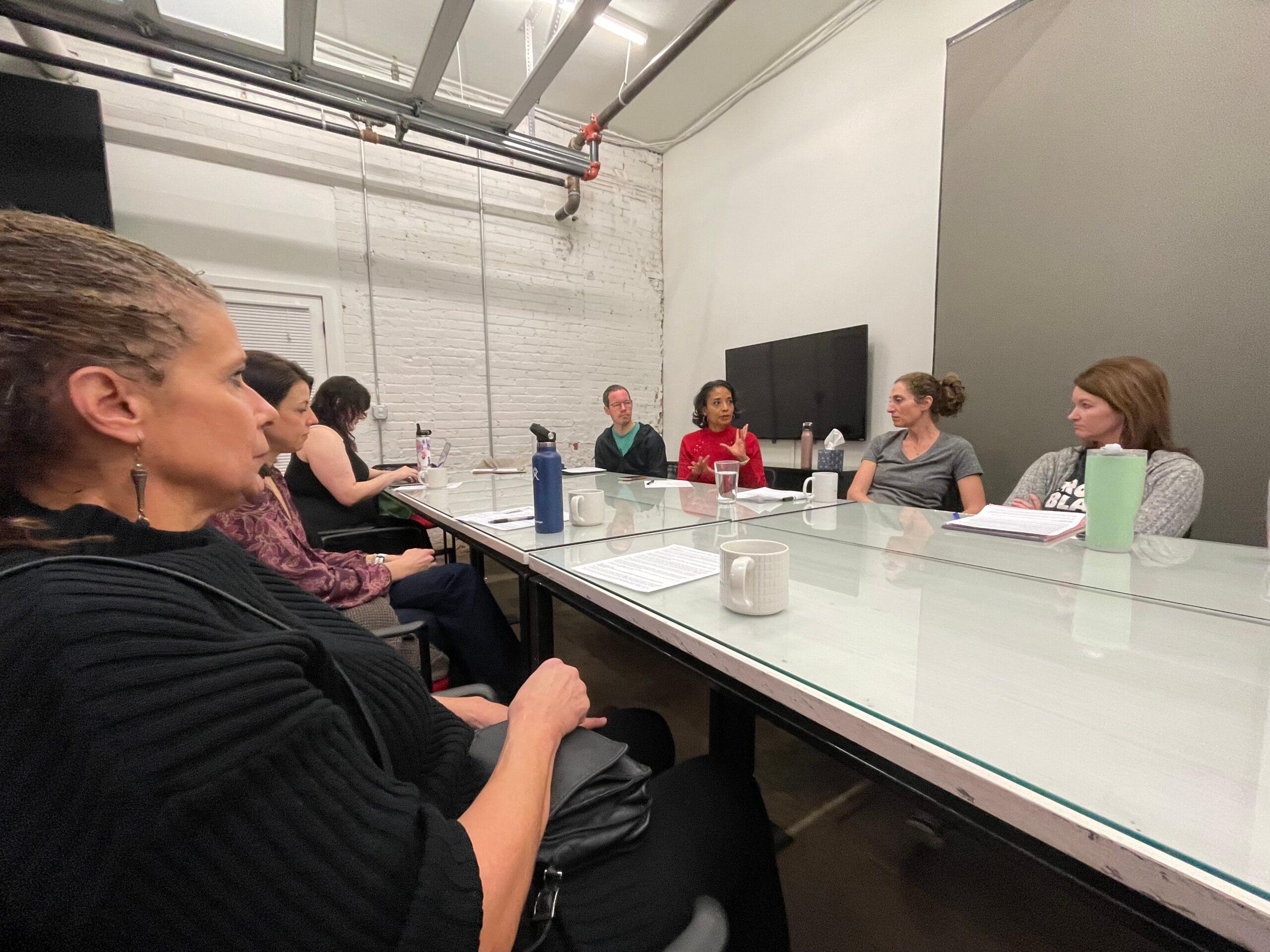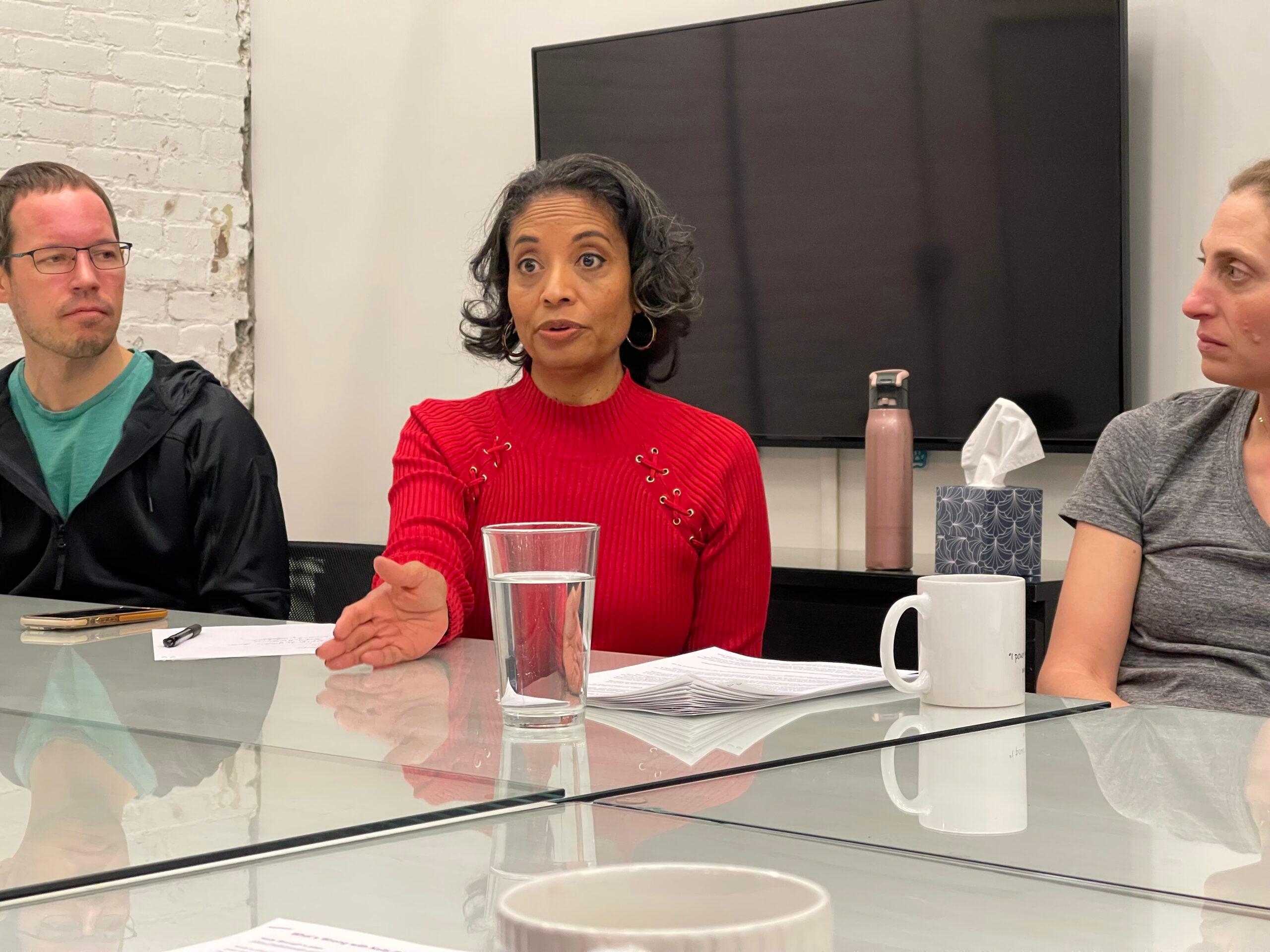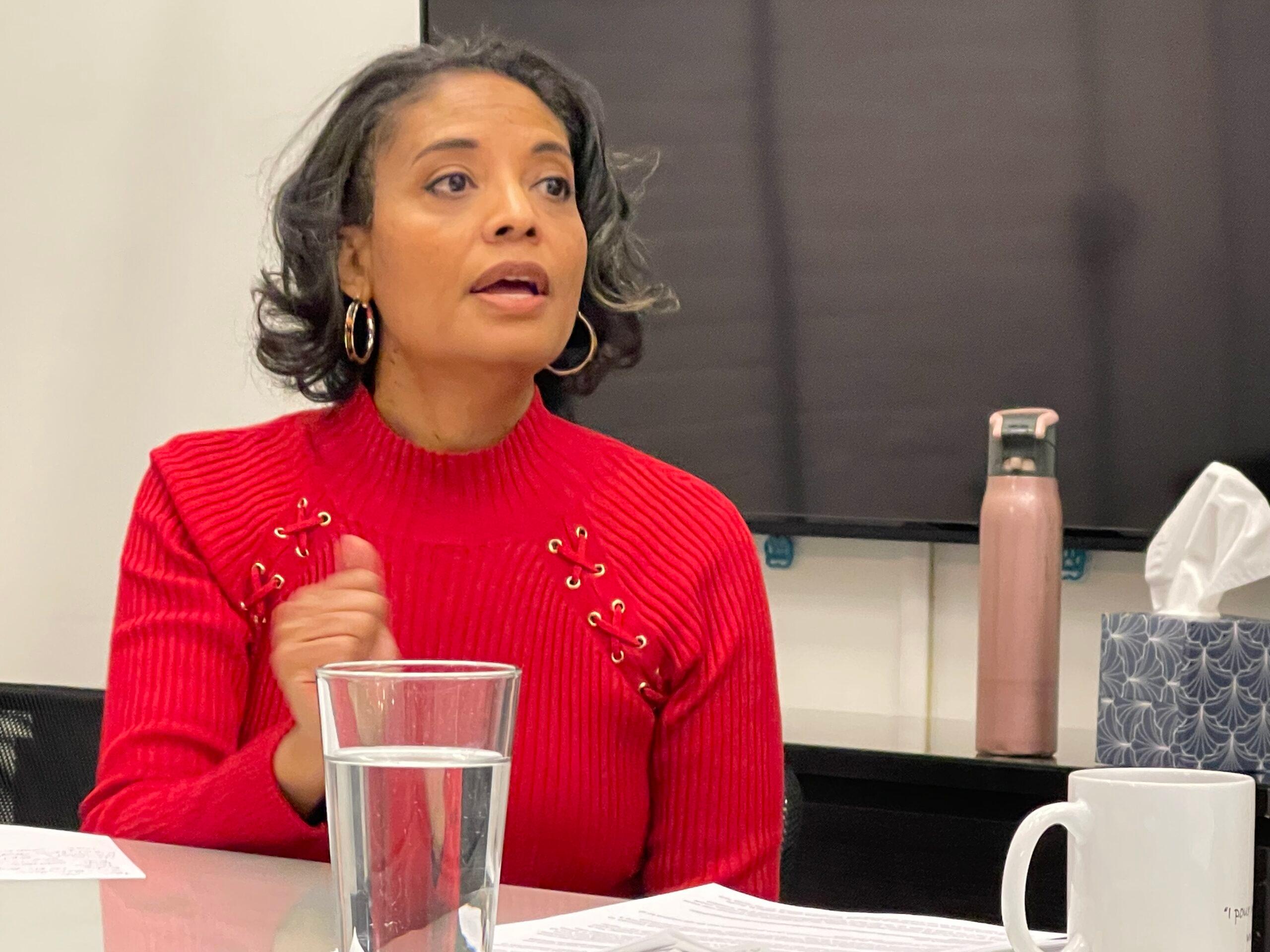Lisa Calderón wants to give power back to the people.
Her approach? Decentralizing government.
Denver has one of the strongest-mayor cities in the country, former-mayor turned Senator John Hickenlooper, recently told us. Stripping power from the role is an unusual move.
The idea of decentralizing government in a strong-mayor city seems a little vague -- until you see Calderón in action.
She's in the community, meeting with the people most affected by social ills and with the least power, collecting their ideas, and shaping her platform from them.
Many of her fellow candidates' strategies for helping the homeless are "paternalistic," Calderón said, and ill-informed. And she doesn't believe the fixes can come from those at the City and County Building alone.
"The solutions are in our communities," she said. "That's why I want to decentralize our government, for the reasons that you all have said. Requiring people to go downtown, to be in line, to take a number, to go through the metal detectors and all of that -- that is not community-centered."
On Saturday, she and her campaign gathered people experiencing homelessness, activists, an infectious-disease doctor who has co-authored a research paper on COVID-19 risks in shelters versus encampments, and grassroots service providers.
Over burritos and coffee, Calderón and the people at the table discussed what is needed in the first 30, 60 and 100 days in helping people move out of homelessness.
The meeting exemplified what Calderón plans to do if elected.
"It is really modeling how I plan to lead in city government, which is we co-create together," she said. "We have been hearing from other candidates about what they want to do for 'those people.' And I'm one of those people."
Calderón herself struggled with homelessness, abuse and violence.
She lived in public housing. And she went on to receive a law degree and a doctorate and to work for the city's reentry program, connecting people who had been in jail with social services. She's become one of the leading voice in criminal justice reform in the city and was the third-place candidate in the 2019 election. She said these experiences motivated her to run again.
"We don't need saviors," she said at the meeting. "We can save ourselves."

Kyle Harris/Denverite
Others in attendance shared stories of sexual assault in shelters, being abandoned by nonprofit agencies once housing had been secured, and suffering without public toilets, trash cans and other basic sanitary services.
The people at the table expressed their frustration with burned-out case workers -- mostly young women in their 20s who don't stay in the profession for long.
Participants discussed their immediate and long-term needs.
Opening public bathrooms, providing trash cans and other sanitation services downtown could keep many of the encampments cleaner, said Ana Miller, who has been unhoused off-and-on for a decade.
"Hygiene and sanitation, in general, would just markedly even make Denver look better, if they had somewhere to be at least disposing of their garbage and somewhere to use the restroom, which appeases nonhouseless people just as much," she added.
By not having public bathrooms, the city is set up to criminalize unhoused people, participants explained.
"We just want people to be cited or arrested for indecent exposure because they're peeing, or they pull down their pants in an alley," Mary Putman, head of the Reciprocity Collective, said. "We want neighbors to complain, because they have people going to the -- well, where are they supposed to go? So we're just setting up houseless folks to fail and to run amok of the law, and to be traumatized by sweeps."
All of that feedback was translated into Calderón's 100-day policy to address homelessness. Here's what it looks like in the plan.
Terese Howard, a longtime homeless advocate and member of the Housekeys Action Network (which is not endorsing candidates in the election), has been instrumental in crafting the policy.
She proposed that in the first 30 days of the administration, the city begin master leasing apartments instead of focusing on sanctioned encampments and tiny home villages. Howard cited a program that Erik Soliván explored when he was in charge of the city's housing and homelessness program as proof that the city renting housing could work.

Kyle Harris/Denverite
Here's how Calderón translated that in her plan:
Based on feedback from participants, Calderón would also stop the sweeps and end Mayor Michael Hancock's administration's "compassionate crackdown" on crime in downtown Denver that includes collaborating with federal prosecutors on gun crimes.
"Sweeps and 'crackdowns' like this destabilize people further and get us further away from connecting folks to permanent housing," her plan states.
Several participants expressed concern with how the city is spending the millions of dollars going into homelessness services and argued both the Department of Housing Stability and the Colorado Coalition for the Homeless are overpaying their leaders while people on the streets suffer.
Again, Calderón's plan reflected the concerns addressed at the meeting.
"Within the first 30 days, a Calderón administration will also do a full audit of city programs for homelessness, and in particular of HOST, and share the findings with the public, including the total cost of the City's housing efforts," the plan states. "We will also get an accurate accounting of the total cost of the houseless sweeps, including the cost of personnel from the public safety, public health, and transportation departments."
What else does Calderón's plan include?
Her administration would reform the case management system to bring more case managers into the community, update training programs for case managers, and incentivize unhoused people to become case managers themselves.
While a housing first model would eventually mean phasing out homeless shelters, in the short-term, the administration would improve their ventilation system, improve storage, bed spacing and other policies, and they would provide both phones and computers to residents who are trying to navigate the health system, according to the plan.
Her administration would work with the state to legalize safe injection sites, where drug users can partake under medical supervision and receive overdose prevention services and access to social services, treatment and other healthcare.
"So when I see this very simplistic, 'this is what we're going to do and this is where we're going to put them,' they totally miss it. Right?" Calderón said. "We need to listen to people with lived experiences. We need to listen to subject matter experts. Some of us have been living this or working on these issues for years, if not decades. And so this is our chance to really co-build an unhoused policy and really a housing policy across the spectrum."
Within 90 days, the administration would be working to create publicly funded, permanent social or public housing in new buildings on city land and retrofitted office buildings and schools. These homes would be kept off of the market.
"We also recognize that housing affordability is essential to preventing people from reaching the crisis point of becoming unhoused," the policy states.
Calderón's approach would not be solely market-driven.
"We will do this through a constellation of policies from local rent control, to emergency funds to keep families in their homes when they hit financial hardship, to legal eviction defense," the plan explained. "We will work with low-income landlords to offset or subsidize their costs for bringing units up to code and achieve clean and energy-efficient upgrades."
Calderón acknowledges there is no single funding method for addressing homelessness and building the needed housing.
"We will use a variety of grants and tax relief opportunities from all levels of government, and public-private and community partnerships to ensure there are enough subsidy funds available to meet the critical housing shortage we face in Denver," she wrote in a statement.
That would include securing highly competitive low-income housing tax credits.
She would also expedite permitting for affordable housing developments, ramp up the Denver Social Impact Bond Program, conduct an audit to identify underused city land and lease it to community land trust developers.
"Our plan fundamentally reimagines the economy and shifting wealth inequities toward community economic development, including for lending and acquiring properties," she wrote. "We will explore progressive financing and acquisition enterprises like public banking and a Social Housing Development Authority involving institutions at all levels of government acquiring properties and then transferring them to the non-profit sectors for deeply affordable and permanent housing."












